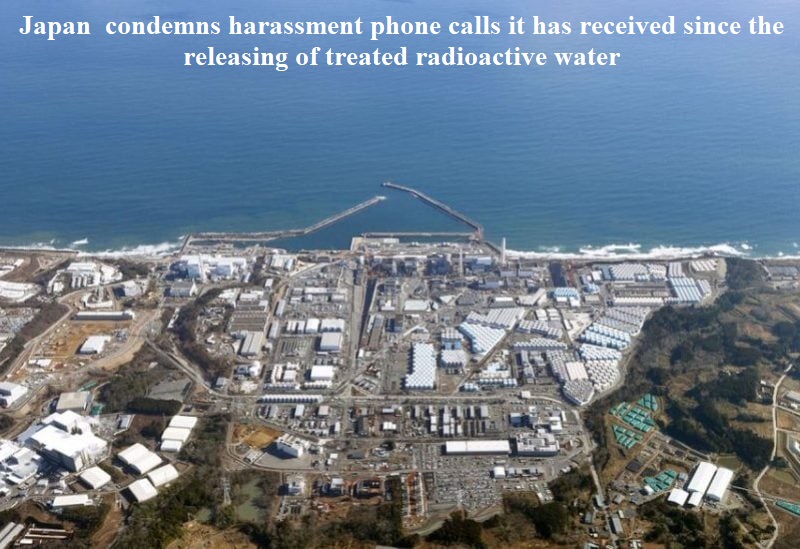
Japan has expressed deep concern regarding a series of harassment phone calls it has received since the Tokyo Electric Power Company Holdings, Inc. initiated the release of treated radioactive water from the Fukushima nuclear power plant into the Pacific Ocean.
Expressing apprehension over these calls, likely originating from China, Japan’s Vice-Minister for Foreign Affairs, Masataka Okano, summoned Chinese Ambassador to Japan, Wu Jianghao, to the Foreign Ministry on Monday. During the meeting, Okano conveyed a strong condemnation of the harassment.
According to Japan News, Okano emphasized to Jianghao that Beijing should refrain from unnecessarily exacerbating concerns with information not substantiated by scientific evidence. He also urged the Chinese government to disseminate accurate information and encouraged authorities to guide their citizens to react calmly in order to prevent the situation from escalating. This plea coincides with reports of incidents like stone-throwing targeting a Japanese school in the coastal city of Qingdao and the embassy.
In response, the spokesperson for China’s foreign ministry stated that they were unaware of the matter.
The Chinese embassy in Tokyo released a statement expressing its own concerns about receiving a significant volume of troublesome phone calls from Japan. Ambassador Wu Jianghao noted that these calls have seriously disrupted the normal functioning of the embassy and consulates.
According to Reuters, calls with numbers starting with China’s country code, +86, began inundating Fukushima city hall on Thursday. By Friday, the volume of calls exceeded 200, overwhelming phone lines and interfering with the city employees’ regular tasks. On the same day, elementary and junior high schools in the city, located around 60 kilometers northwest of the Fukushima nuclear power plant, encountered 65 similar calls.
Local media reports indicated that other entities like municipalities, hotels, and restaurants were also subject to such calls.
China’s foreign ministry spokesperson, Wang Wenbin, defended the nation’s stance by stating that Beijing consistently safeguards the safety and lawful rights and interests of foreign nationals within China as per legal provisions.
In a pivotal move toward the decommissioning of the compromised plant, Japan initiated water discharge on Thursday. The operator of the Fukushima plant, Tokyo Electric Power (Tepco), reportedly filtered contaminated water to eliminate isotopes, leaving only tritium, a radioactive hydrogen isotope that’s challenging to separate. Despite this, China asserts that Japan has not substantiated the safety of the water discharge and has imposed a blanket ban on aquatic products from Japan.

Post Your Comments